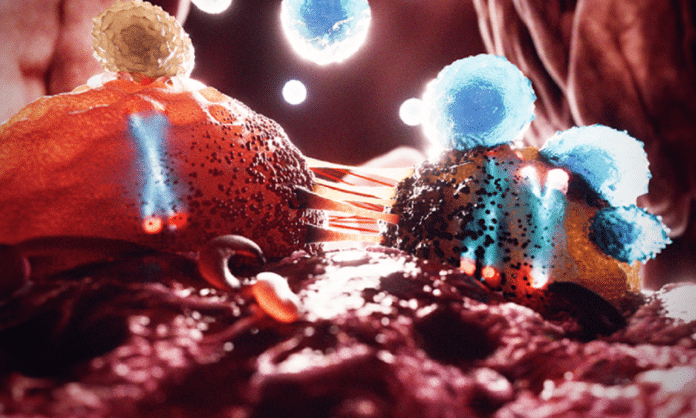The Y chromosome is a crucial genetic component exclusive to males, playing a vital role in determining male sex characteristics and fertility. However, recent studies have shed light on an intriguing phenomenon known as loss of Y chromosome (LOY) in a significant fraction of aging men. LOY has been implicated in various age-related conditions, including increased cancer development and progression risk.
This study aims to comprehensively investigate the association between LOY and cancer growth, exploring the potential mechanisms underlying this phenomenon. By unraveling the intricate relationship between LOY and cancer, valuable insights may emerge, providing a foundation for improved diagnostic and therapeutic strategies in the future.
New research from Cedars-Sinai Cancer reveals that as men age, the loss of the Y chromosome in some cells impedes the body’s ability to combat cancer. Published in the prestigious journal Nature, the study highlights how the absence of the Y chromosome aids cancer cells in evading the immune system.
Surprisingly, this age-related effect contributes to aggressive bladder cancer and enhances the disease’s susceptibility to immune checkpoint inhibitors, a standard treatment. Building upon these findings, scientists are developing a test to detect Y chromosome loss in tumors, aiming to assist healthcare professionals in tailoring immune checkpoint inhibitor therapy for male patients diagnosed with bladder cancer. We discovered that loss of the Y chromosome allows bladder cancer cells to elude the immune system and grow very aggressively.”
Dan Theodorescu, MD, Ph.D., director of Cedars-Sinai Cancer, the PHASE ONE Distinguished Chair and corresponding author of the publication, who initiated the research, said, “This study, for the first time, makes a connection that has never been made before, between loss of the Y chromosome and the immune system’s response to cancer. We discovered that loss of the Y chromosome allows bladder cancer cells to elude the immune system and grow very aggressively.”
Lead collaborators on the study, including researchers from The Ohio State University Comprehensive Cancer Center, found that loss of the Y chromosome in men can contribute to the aggressive growth of bladder cancer. The Y chromosome is typically present in males, and its loss has been observed in various cancer types, including bladder cancer.
The study developed a scoring system to measure Y chromosome loss in bladder cancer cells. Patients with Y chromosome loss had poorer prognoses without immune checkpoint inhibitor treatment but better overall survival rates when treated with immune checkpoint inhibitors. Laboratory experiments using mice confirmed that tumors lacking the Y chromosome grew more rapidly when the immune system was intact, suggesting that T-cell exhaustion plays a role.
Interestingly, tumors without the Y chromosome were more vulnerable and responsive to immune checkpoint inhibitors. The researchers also speculated that Y chromosome loss may impact prostate cancer aggressiveness. Understanding the genetic connection between Y chromosome loss and T-cell exhaustion could improve treatment outcomes.
The findings may have implications for both men and women, as the Y chromosome contains related genes that could play a role in cancer biology. The study highlights the importance of considering sex as a variable in scientific research. It underscores the multifaceted functions of the Y chromosome beyond determining biological sex. The findings provide valuable insights into cancer biology and may have broader implications for personalized cancer treatments in the future.
Journal Reference:
- Abdel-Hafiz, H.A., Schafer, J.M., Chen, X., et al. Y chromosome loss in cancer drives growth by evasion of adaptive immunity. Nature. DOI:10.1038/s41586-023-06234-x
